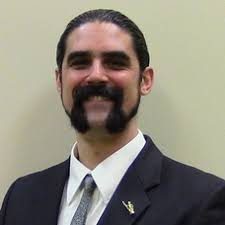
Week 1: June 16th and 17th
Tuesday, June 16th: 1-4 PM EST
Opening Remarks:
Jenny Stonemeier, APSE Executive Director
Mark Schultz, Acting Assistant Secretary for the Office of Special Education and Rehabilitative Services (OSERS) and Commissioner of Rehabilitation Services Administration (RSA)
Who are the Heroes? A History of the Disability Rights Movement
In celebration of the 30th anniversary of the signing of the Americans with Disabilities Act, this presentation will explore key moments and personalities of the disability rights movement over the past one hundred years. Participants will learn about our heroes who, through their courage and conviction, fought for equality and laid the foundation of the four “pillars” of the ADA; full participation, independent living, equality of opportunity, and economic self-sufficiency.
As a new generation of Supported Employment professionals enter the field, many are unaware of the histories and heroes of the disability rights movement who came before us. For our seasoned professionals, this session will remind us, as David McCullough wrote, of where we have come from, what we have been through, the courage shown, the costs paid, to be where we are.
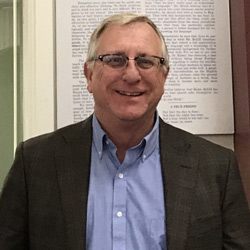
Barry A. Whaley
Director of the Southeast ADA Center
Southeast ADA Center, a project of the Burton Blatt Institute, Syracuse University College of Law
Community Integration, Integrated Employment, Accessibility, and Inclusion: The Time is Now.
Jenny Hatch’s Virginia court case opened the way for others with disabilities to fight for their independence. Hatch challenged a guardianship request by her parents that would have allowed them to keep her in a group home, and away from the friends she wanted to live with and the job she wanted to hold. Her attorneys argued at the time that she didn’t need someone to make every decision for her. She simply needed support making decisions. When Hatch won her case, she became an immediate champion for disability rights. She also became a reminder of what is possible when people are judged by what they can do instead of by what they can’t.
Following up on Jenny Hatch’s keynote, Jonathan Martinis will discuss the need to demand appropriate services and supports. For too long, people with disabilities have been told to wait for states to develop community integration, supported employment, and accessibility plans and services. With the Americans with Disabilities Act almost 30 years old, the time for advocacy and action is now!
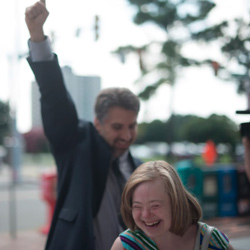
Jonathan Martinis
Senior Director for Law and Policy
Burton Blatt Institute at Syracuse University

Jenny Hatch
COVID-19 and Employment First: An APSE Conversation about the Realities and Opportunities
COVID-19 has changed almost every aspect of our lives in a very short period of time; it’s also raised important questions for how we do the work of supporting employment in the future.
In this timely conversation led by Todd Culver of Incompass Michigan, we will examine how our work has been impacted. Panelists will also consider the opportunities that may arise out of the crisis. Attendees will be asked to share their ideas and participate in the conversation.
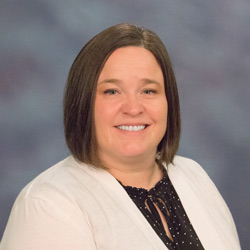
Stacy Collins
Project lead from DODD
Opportunities for Ohioans with Disabilities

Todd Culver
Chief Executive Officer
Incompass Michigan

Pamela Grider-Cross
Executive Director
Central Arkansas Disability Service Inc.
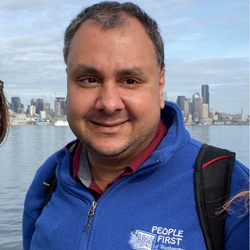
John Lemus
At Work! WA
Wednesday, June 17th: 1-4 PM EST
Opening Remarks
Jenny Stonemeier, APSE Executive Director
Margaret Gilbride, APSE Board of Directors President
Senator Tom Harkin
Embracing Disruptive Technology and the Future of Employment
Whether it’s a phone, computer, or tablet, nearly all of us use technology in some way to support our work. Why shouldn’t it be the same for people with disabilities?
Dr. Emily Shea Tanis will lead APSE attendees in a conversation about how to use technology to support people to get jobs. As Co-Director of The Coleman Institute for Cognitive Disabilities, Dr. Tanis works to catalyze and integrate advances in technology that promote the quality of life of people with cognitive disabilities and their families. Dr. Tanis will speak about technology supports within employment, including ways that businesses and tech companies are driving employment trends. Bringing to APSE new ways of thinking about technology Dr. Tanis will give ideas and resources for employers, businesses looking to expand to a more diverse workforce, and employment support professionals to take back to their business.
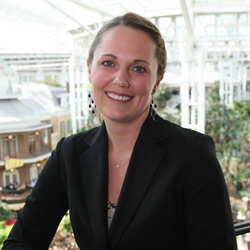
Shea Tanis
Co-Director
The Coleman Institute for Cognitive Disabilities
Technology, Employment First, and a Changing Landscape: An APSE Conversation
From Technology First to remote job coaching, this conversation led by Duane Shumate will discuss and cover the resources available to move employment services to online formats. Attendees will hear how four Employment First champions are using technology to drive their work. This session will push you to rethink everything you thought you knew about technology and employment.

Katherine Carol
Tri-Chair
Tango Consulting/The Shining Beautiful Series Podcast, Employment First Advisory Partnership and Parent

Scott Ellsworth
Federal/State Apprenticeship Consultant
JFF
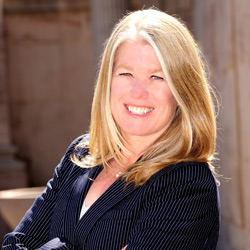
Patrica Henke
Director
CO Office of Employment First
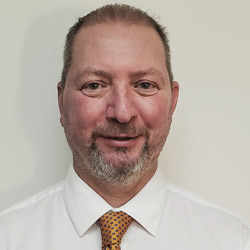
Duane Shumate
Breakout Sessions June 22nd – July 31st
Week 2: Employment Supports and Employer Engagement Track
June 22-26 / Sessions daily at 1 PM EST and 2:15 PM EST
Track sessions aimed toward employment support professionals looking to improve their work as consultants to businesses and persons served and their support teams
50 Ways to Engage Employers
Employer engagement that leads to good jobs for people with disabilities continues to be one of the most challenging and time-consuming activities for employment service agencies. Successful strategies will be shared that were collected from over 50 organizations across the US and the United Kingdom. This interactive training session will assist participants to create a work plan that can be implemented immediately.
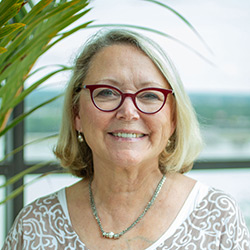
Paula Johnson
National Consultant
Cincinnati Children's Hospital - Project SEARCH
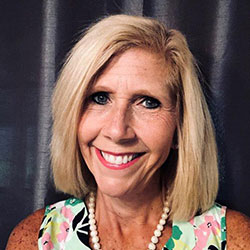
Cindy Burns
National Consultant
Cincinnati Children's Hospital - Project SEARCH
Good Fences Make Good Neighbors: Collaborating with Families to Create Opportunity
Agency and family collaboration is key to employment success. However, parents are often rightfully concerned about the efficacy of employment supports. Likewise, job coaches may consider certain kinds of parent involvement as detrimental to a successful job match. In this workshop, we will discuss how to set policies and practices that welcome the critical input of families, while also maintaining appropriate and well-defined boundaries that will affirm the professionalism and competence of the worker.
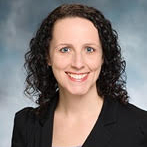
Bethany Chase
Training and Consultation Specialist
The Boggs Center on Developmental Disabilities
Unleashing Employment Potential through Effective Benefits Planning Services
Disability benefits are a complex and confusing topic. Individuals with disabilities and their families are often concerned that they will lose their benefits and support if they work. With years of experience, let us help you help your clients unlock their potential! We will debunk the myths and provide up-to-date information on how clients can continue to work and manage their benefits.
Learn how to initiate employment discussions that integrate benefits throughout the employment process, including how to share accurate and timely information to motivate and promote employment. After this session, you will be able to identify someone who benefits planning services would enable them to make informed choices about work, to find credible support for working beneficiaries to make a successful transition to financial independence, and take away that fear.
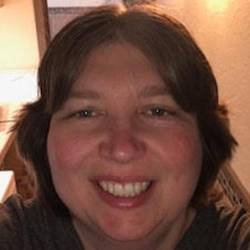
Tammy Crouch
Community Work Incentive Coordinator (CWIC)
Disability Rights Iowa
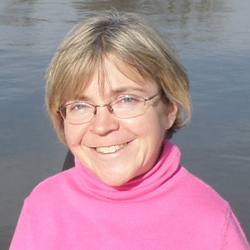
Jaime Head
Ticket to Work Program Director
Full Circle Employment Solutions LLC
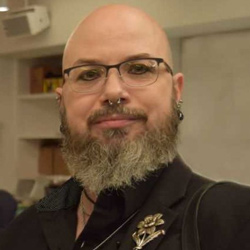
Nicholas Love
Training & Communication Manager of Employment & Disability Benefits
World Institute on Disability
Employer First: Effective Approaches for Working with Today's Businesses
Job developers, and others approaching employers on behalf of others, continue to use ineffective methods to approach employers. We must first learn to listen to businesses’ needs before we can offer a value proposition that includes a person with a disability). This sentiment is not but most training delivers the same old methods. This session will teach proven tactics to combat the unacceptably low employment rates of people with disabilities-especially with IDD.
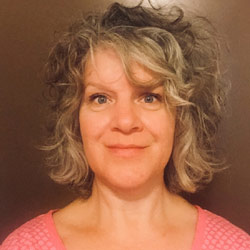
Cyndi O’Bannon
Business Consultant and Program Developer
Independent Consultant
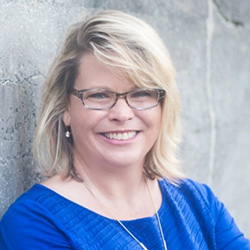
Deb Russell
CEO
Deb Russell Inc.
Lessons Learned from Top Entrepreneurs: Build Your Entrepreneurship Tool Box
Employment services are primarily geared toward finding employment for the people supported. However, what happens when they want to own their own company? This session will teach you how to build a business plan, design a business, find outside resources to assist, and finally funding to support the business. The session will take lessons learned from top Entrepreneurs with Disabilities.
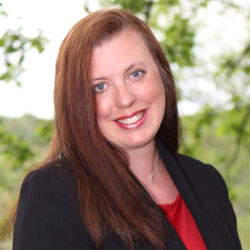
Lisa Svidron, MA., CESP
Associate Director of Employment Services
Mainstay Life Services
Accommodation Strategies Elevate Both Employee and Employer: A Q&A with the Consultants from JAN
Job Accommodation Network consultants uniquely field questions about workplace accommodations and disability employment issues from a range of constituencies including applicants and employees with disabilities; employers; and service providers. Why? Research shows when each constituency’s knowledge is elevated, the greater the opportunity for achieving successful employment outcomes for people with disabilities. In this session, consultants will provide an overview of JAN’s services, discuss specific accommodation scenarios, and offer guidance on the Americans with Disabilities Act.
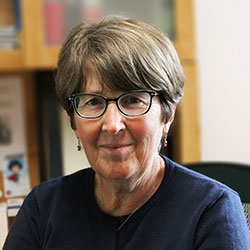
Kim Cordingly, Dr.
Lead Consultant
Job Accommodation Network (JAN)
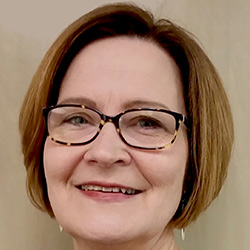
Melanie Whetzel
Lead Consultant
Job Accommodation Network (JAN)
De-Escalation in Employment Settings: Training and Demonstration on Verbal De-Escalation Techniques
As an employment specialist do you ever feel as though anger comes out of left field straight into your direction? Knowing how to effectively and quickly verbally de-escalate potentially volatile situations can be key in supporting individuals in successfully reaching or maintaining their employment goals. This hands-on training will give you the opportunity for both demonstration and practice of research-based skills and techniques for verbal de-escalation that you can confidently apply in the future.
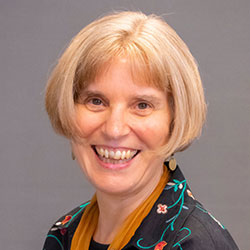
Cecilia Buckley
Research Associate
Indiana Institute on Disability & Community, Center on Community Living & Careers, Indiana University

Brady Powers
Research Associate
Indiana Institute on Disability & Community, Center on Community Living & Careers, Indiana University
Natural Supports: Getting Out of the Way
Employment Specialists are encouraged to build, find and use them in the workplace. “Well, how do I do THAT?” This session will introduce information and strategies for inviting and facilitating natural supports, explaining what they are and are not and how the Employment Specialist can get out of the way.
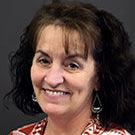
Sandra Block
Research Associate
Indiana Institute on Disability & Community, Center on Community Living & Careers, Indiana University
A Snapshot of Potential: Using Situational Assessments to Capture the Moment
A majority of us have had the opportunity to work in a variety of settings over time and have used those experiences to inform our choices about career preferences. Unfortunately, many individuals with disabilities have not had a similar wealth of opportunities to gain insight into the type of employment paths they would prefer. Situational assessments, when used effectively, can provide a rich sampling of exploration that job seekers need to make informed career choices.

Jessica Short, CESP
Senior Training and Consultation Specialist
The Boggs Center on Developmental Disabilities
Informed Choice and Supported Decision-Making
This session explores the national landscape on supported decision-making, informed choice, and the importance of self-determination for achieving competitive integrated employment. We will share promising practices at the individual and systems level and describe replicable practices DC and Missouri used to support self-advocates and family members to lead change. Attendees will receive a just-released guide to informed choice and employment, and we will discuss how strategies in the guide can be applied to real-life situations.
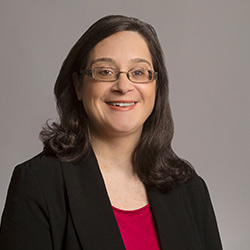
Erin Leveton
Director
Alvarez and Marsal
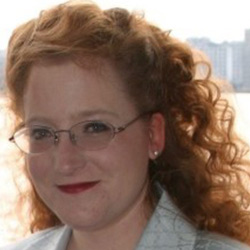
Morgan Whitlatch
Legal Director
Quality Trust for Individuals with Disabilities
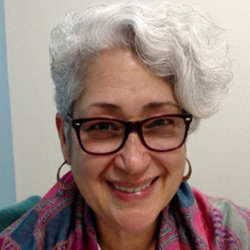
Joan Christopher
Director of Community Services
Georgetown University Center for Child and Human Development, University Center for Excellence in Developmental Disabilities

David Hoff
Program Director
Institute for Community Inclusion, UMass Boston
Week 3: Organizational Growth Track
June 29-July 2 / Sessions daily at 1 PM EST
Geared toward mid-level managers and organizational leaders leading employment teams to support you in learning how to fund employment services, manage and encourage the professional development of your staff, and plan for organizational success.
An Insider's View to Grantmaking: Funding from a Grantmaker's Perspective
Often, grantmaking is a closed and secretive process. Today, applying for grants is often necessary to sustain an organization’s bottom line. This session provides an insider’s view on the skills and attributes behind successful grantmaking, such as grant selection and review, project management, and evaluation. Understanding these basic decision-making principles used by foundations will help bolster your working relationship with your funding partners.
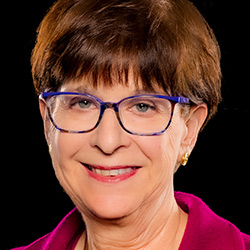
Elaine Katz
Senior Vice President of Grants & Communications
Kessler Foundation
Tracking Metrics That Matter for Scaling Up Employment Outcomes
Employment programs play a key role in supporting job seekers with disabilities to achieve their career goals. However, the quality and efficiency of employment programs depend on their ability to implement the known standards of effective employment supports with fidelity. Join this session to learn from a panel of employment program directors about tracking metrics that matter for improving fidelity of implementation and scaling up employment outcomes.
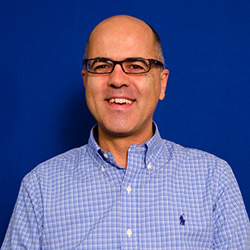
Alberto Migliore
Senior Research Associate
Institute for Community Inclusion, University of Massachusetts Boston

John Butterworth
Senior Research Fellow
Institute for Community Inclusion, University of Massachusetts Boston

Steve Aalto
Vice President, Workforce Development
Work Inc.
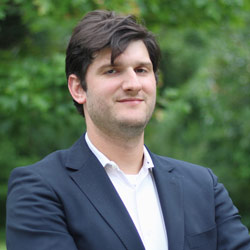
Michael Petrick
Program Director- Employment Services
SEEC
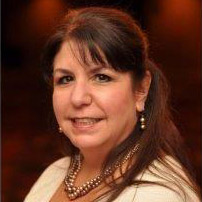
Jeannine Pavlak
CEO
New England Business Associates
Wraparound Community Engagement and Employment Supports
Come learn how SEEC, an agency providing employment and supported living supports, built a community engagement service that creates pathways to employment for job seekers with intensive support needs. The presenters comprised of SEEC Community Engagement team will share service outcomes, unique staffing patterns, cross-agency collaboration, community partnerships, service schedules, and work with families. Participants will take-away a service framework for replicating a community based pre-employment and wrap-around service.
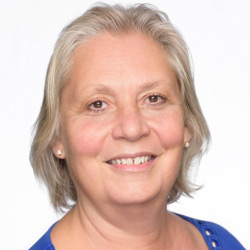
Sherry Beamer
Community Employment Network Department Director
SEEC

Shari Carver
Community Engagement Lead
SEEC
Training and Retaining Staff with an Emphasis on Employer Related Services
Staff development is most often accomplished through external training organizations. While external training trainers and events should be valued, this approach does not ensure the development of staff skills, competency and improved employment outcomes and presents challenges with sustainability. This session will focus on developing staff performance that will generate more and better employer engagement when provider organizations adopt and reinforce the training curriculum. This investment in staff increases retention and promotes better employment outcomes.

Dale Verstegen
TransCen, Inc.

Todd Culver
Chief Executive Officer
Incompass Michigan
Recruiting and Retention of Employment Support Professionals
Organizations are constantly looking to attract qualified employees who are committed to our work. Too often we invest in hiring and training employees only to have them leave their position, taking their expertise and certifications to another job. Presenters will discuss their strategies to recruiting and retaining Employment Support Professionals. This session will also encourage participants to share their own successes and struggles, so we can learn from each other.
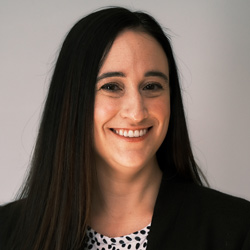
Andrea Consigny
Division Director
SPIN
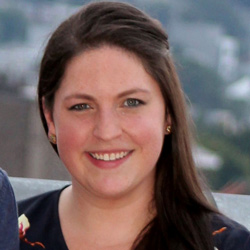
Chelsea Lutts
Director
SPIN
Functional Feedback: The Key to a Happy and Successful Team
Strong team communication is the key to a successful program but is often the primary barrier to effective leadership, program performance, and staff retention. Using positive intent, open dialogue, and functional feedback, teams can reach a new level of synergy, maximizing professional development, and improving staff retention and outcomes. This breakout will teach the basics of functional feedback, including types of feedback, situation-specific uses, and open dialogue techniques to improve communication and improve co-worker relationships.
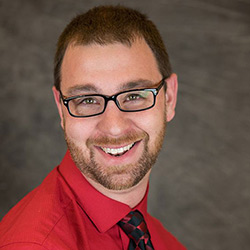
Ryan Aldrich
Program Director
NEBA
Week 4: Diversity in Employment Services
July 6-July 10 / Sessions daily at 1 PM EST
Conversations addressing the unique barriers and supports needed to support the employment of different populations (cultural competence, gender disparities, veterans, aging and employment)
Natural Supports: Allyship and Supported Decision Making for the Workplace
One of the most important tasks of the employment specialist is encouraging the development of natural supports. While there are a number of ways to achieve this goal, this presentation will discuss natural supports within the frames of allyship and Supported Decision Making. Each of these frameworks offers practical strategies for workplace relationships which have the potential to substantially benefit employees with disabilities.
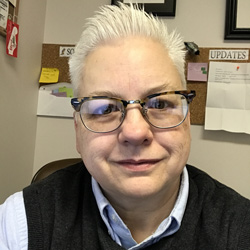
Bev Harp
Project Manager
University of Kentucky
Laura Butler
Project Manager
University of Kentucky
Multicultural Ethics in Rehabilitation Services
Every person is multicultural and has a unique cultural identity. Rehabilitation professionals are required to be competent in serving multiculturally diverse clients in a manner that promotes empowerment and full engagement. Multicultural competency is critical for accurate clinical assessment and diagnosis, and for effectively serving a diverse population of clients. This session will promote multicultural awareness, knowledge, sensitivity, and competence through information and exercises that integrate ethical principles and practices required by all rehabilitation professionals.
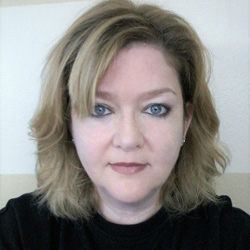
Tammy Jorgensen Smith, Ph.D., CRC
Associate Professor
University of South Florida
The Ethical Intersection of Culture and Disability
Students and youth with disabilities are required to have transition planning coordinated between schools and other agencies as mandated under the Individuals with Disabilities Education Act and the Workforce Innovation and Opportunity Act. However, there is no emphasis on consideration of the cultural values and beliefs of the students, youth, and their families. This session will discuss this intersectionality and how to be culturally responsive in our work to help them achieve positive post-school outcomes.
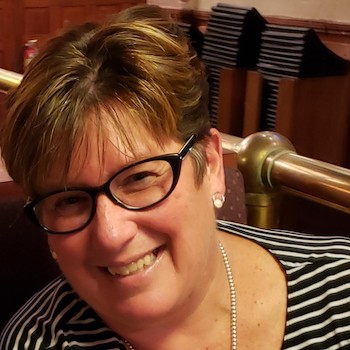
Wendy Quarles
Project Director
Cornell University Yang Tan Institute on Employment and Disability

Kimberly Osmani
Technical Assistance Liaison
Cornell University Yang Tan Institute on Employment and Disability
Co-Occurring Challenges: Visual Impairment and DD/ID
Providing employment services to people with Developmental/Intellectual Disability and Visual Impairment has several unique challenges. Co-Occurring conditions can often be undiagnosed or misdiagnosed in people with Visual Impairments. Conversely, people with ID/DD may progressively lose usable vision as they age. It can be difficult to know which condition is presenting the biggest challenge to employment success. This session is designed to equip service providers with questions, tools, and resources to navigate these complex issues.
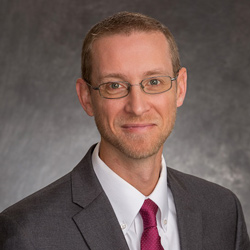
Christopher Frank
Director
Center for Human Services Education
Week 5: Emerging Trends in Research and Public Policy, Grassroots Advocacy
July 13-July 17 / Sessions daily at 1 PM EST
Take a look at the “big picture” of systems and wide-scale movements. Engaging in conversations about what’s happening at the state and local levels to learn from other’s experiences and stories.
How Siblings Support Community Employment of People with Intellectual and Developmental Disabilities
This presentation will cover how siblings of people with disabilities support employment. Qualitative analysis revealed three areas of interest in learning about sibling roles: the attitudes siblings hold about their brother or sister being employed, the amount & types of knowledge siblings have about employment-related systems, policies, opportunities, etc., and the practices in which siblings engage to help their brother or sister with I/DD find and maintain employment.

John Kramer
Clinical Assistant Professor
University of Florida
Launching a Statewide Employment First Initiative: Indiana's Work to Include Coalition
Are you interested in launching an Employment First initiative in your state, or strengthening your current efforts? Join us for an engaging and informative discussion of Indiana’s efforts during the past two years to enact a grassroots “bottom-up” Coalition led by individuals with disabilities, and a “top-down” statewide policy and systems change initiative to advance Employment First. Activities and strategies will be shared, and the audience will be invited to share your experiences.
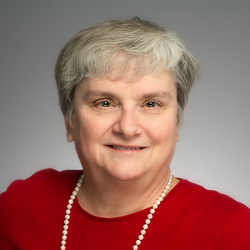
Bonnie Bomer
MPA, Advocacy Specialist
Indiana Disability Rights
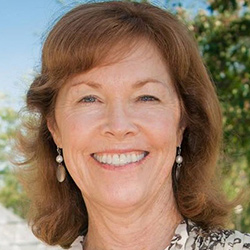
Pat Rogan
Professor
IUPUI School of Education
Employment First Initiatives developed through Grassroots Advocacy: Colorado’s Story
The Employment First movement is perhaps most effectively implemented at the state level through specific legislation and/or executive order (consent decrees can, of course, also be quite effective but most states try to avoid them!). After less formal efforts to expand competitive integrated employment outcomes for Colorado citizens with disabilities had underperformed, advocates came together to craft legislation in 2016. Additional grassroots-led legislation was subsequently passed to build a vibrant EF initiative!

Marilee Boylan
Chair
Employment First Advisory Partnership
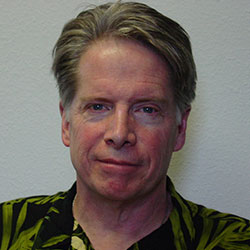
Robert Lawhead
Chair
Employment First Advisory Partnership
It's Not You It's Me: Breaking up with Outdated Beliefs through the Social Model & Disability Rights
Less than a century ago in the United States, institutionalization and forced sterilization of people with disabilities were commonplace—even encouraged. Drastic changes in society’s approach to people with disabilities are paralleled by evolving theoretical ‘models’ of how society thinks about disability. Join us for an in-depth discussion on the transformative capacity of the social model and disability rights to teach us about our past and to ground our future work in supporting employment first.
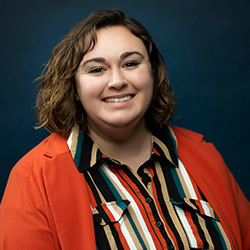
Alli Strong-Martin
Assistant, Business Development & Innovation
Lifeworks Services, Inc.
Social Enterprise: The Good, the Bad, and the Ugly
Social enterprises are popping up all over the country with the goal of employing people with disabilities. There are car washes, coffee shops, breweries, pizzerias, etc. Social enterprises are revenue-generating businesses with a twist. Their goal is to achieve social, cultural, community economic and/or environmental outcomes and to earn revenue. This session will explore the concept of social enterprise and its role in the employment of people with disabilities.
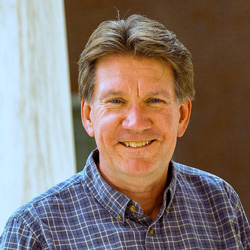
Bryan Dague
Research Assistant Professor
University of Vermont-Center on Disability and Community Inclusion
Week 6: School to Work Transition
July 20-24 / Sessions daily at 1 PM EST
Discussing ideas and strategies that ensure young people leave school ready, willing, and able to work.
Are You Ready To Be More Engaged in School to Work Activities?
Students and families have heightened expectations that students will leave secondary education with at least community based vocational experience and even better with a job. Policy and practice have begun shifting to make that expectation more of a reality, but how prepared are community providers to work with these populations and achieve this goal? Are your staff ready? Learn about resources to help support your organization in increasing its involvement with school-based youth.
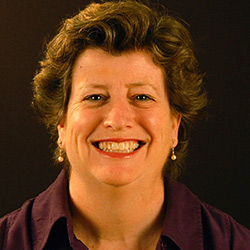
Sheila Fesko
Associate Dean
University of Massachsuetts Boston
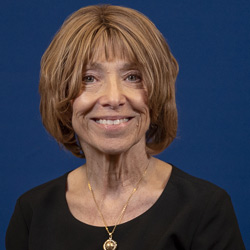
Karen Flippo
Institute for Community Inclusion
In the Day of Employment First: What this Means for Young Adults
Expectations of employment must be set high and early in a young adult’s life. Let’s delve into what pre-employment transition services can do to ensure our young adults believe they will one day be wage earners. During high school, this is a time for exploration, increasing awareness, and providing opportunities to learn about strengths and interests. The focus of this session is to discuss the importance of preparation and how that can lead to employment.
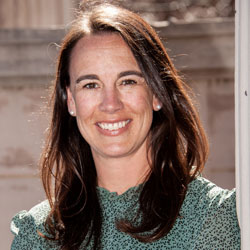
Jennifer Stewart
Breaking Expectations LLC
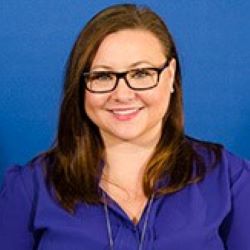
Ashley Stone
Transition Coordinator
Massachussetts Rehabilitation Commission
Using Educator, Agency, and Parent Voices to Drive Pre-Employment Transition Services
Improving delivery of transition services and equipping youth with disabilities with the skills to work is imperative for addressing persisting unemployment. We illustrate the implications of Pre-Employment Transition Services (Pre-ETS) and describe a statewide survey of key stakeholder views of Pre-ETS services. We share our study findings, implications for Pre-ETS delivery, and ways in which we are using data to inform the development of training and resources necessary for youth with disabilities to achieve employment.
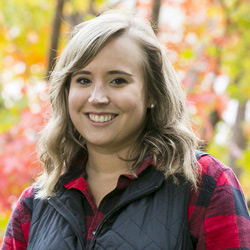
Michele Schutz, M.Ed.
Doctoral Student and Research Assistant
Vanderbilt University

Jessica Awsumb, Ph.D.
Research Associate
Vanderbilt University
Creating Competitive Integrated Employment Outcomes for Youth Through Collaborative Partnerships
There never has been a more critical time for Education, Vocational Rehabilitation and Community Rehabilitation Providers to coordinate and collaborate in providing work experiences for students with disabilities. This interactive session will provide an overview of practices that improve collaboration, examine why partnerships fail, ways to engage families and provide strategies and tools to enhance and sustain partnerships.
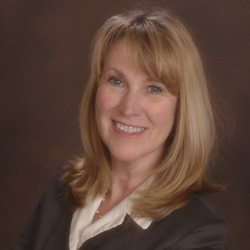
Jacque Hyatt
Senior Research Associate
TransCen, Inc./NTACT
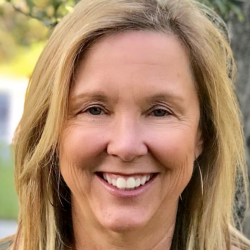
Ruth Allison
Senior Research Associate
TransCen, Inc./NTACT
Creating a Culture Fit for Change. How Diverse Leadership Galvanized Colorado’s Employment First Initiative
Never underestimate the ability of a small group of committed individuals to change the world. ~ Margret Mead
Learn the critical elements used in creating a “change-capable” culture necessary to transform Colorado’s efforts both now and into the future. Examine how the “5 C” approach to transformational leadership is paving the way for robust partnership agreements and effective teamwork. The 5C approach consists of Communication, Collaboration, Commitment, Creativity, and Compassion. Blending these elements, trust, and a strong strategic plan produced 7.2 million dollars in funding and the newly established Office of Employment First. Focusing on priorities, creating new organizational structures and implementing our plans created real results and continues to evolve.

Katherine Carol
Tri-Chair
Tango Consulting/The Shining Beautiful Series Podcast, Employment First Advisory Partnership and Parent
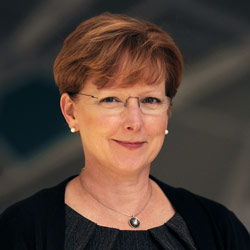
Kristin Corash
Director
Colorado Division of Vocational Rehabilitation
Week 7: Pushing Boundaries
July 27-July 31 / Sessions daily at 1 PM EST
Using Apps and Other Assistive Technology (AT) to Elevate Cognitive Function in the Workplace
Overcoming workplace barriers can be challenging for employees with cognitive and mental health impairments. The use of Apps and other assistive technology can promote independence and enable employees to be successful. This session will briefly discuss the services provided by the Job Accommodation Network (JAN) and share examples of using Apps and other assistive technologies as workplace accommodations. The situations and solutions will lead a discussion on various technologies that might assist with cognitive difficulties.
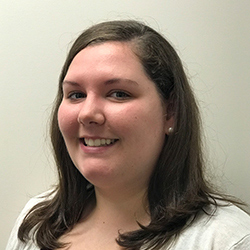
Sarah Small, M.S., CRC
Consultant, Cognitive/Neurological Team
Job Accommodation Network (JAN)
More Than Memes: The Hidden Potential of Social Media in Modern Job Development
Many of us have a history using social media for showcasing our food or reposting funny videos. While these are entertaining uses of our digital community, it should be so much more than sharing cat memes. Modern job development lives in the palm of your hand! Over 60 million businesses use Facebook, 30 million use LinkedIn, 92% of recruiters use these to find talent. It is time for Supported Employment to harness this power. #bethereorstayunaware
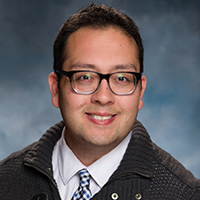
Robert Kimmel
Training and Consultation Specialist
The Boggs Center on Developmental Disabilities
Supporting Value in the Workplace: How Social Role Valorization Strengthens Employment First
A recurring challenge for Employment First professionals is the idea of people with disabilities not being typical employees of a workplace but rather clients of the human services system. This session will explore ways for job developers to foster value in the role of employee by considering job tasks, job setting, social context, personal presentation, language, and more.
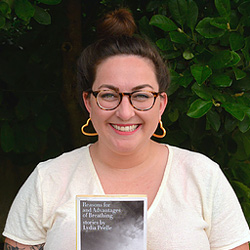
Mackenzie Pirtle
Employment Specialist
Mattingly Edge
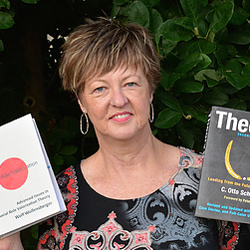
Hope Leet Dittmeier
Executive Director
Mattingly Edge
"Meet Us at the Horizon," play, shows Employment First in the community through theater.
The play “Meet Us at the Horizon” is an original play written by Jorrell Watkins. The play was directed by Jason Grubbe and produced by Combined Efforts Theater Company, of Iowa City, Iowa. Combined Efforts is a visual and performing arts company with a mission of artistic excellence through purposeful collaboration between artists with and without disabilities. The theater is a powerful vehicle to deliver messages regarding our society and culture to large, diverse groups. Through a play/performance, attention is drawn to issues, without overtly imposing the agenda of Employment First. The goal was to present issues of disability, diversity, employment and community in a way that people from diverse backgrounds within and outside the field of disability could engage.
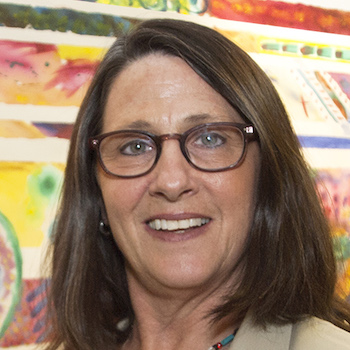
Tammie Amsbaugh
Program Manager
University of Iowa Center for Disabilities and Development, Iowa's University Center for Excellence in Developmental Disabilities (CDD/UCEDD)
Employment First in Colorado: Effective Partnerships Lead to Innovative Services
The Colorado Division of Vocational Rehabilitation (DVR) has experienced an unprecedented opportunity to build capacity to ensure competitive integrated employment is the primary and preferred option for working age individuals with disabilities. This opportunity developed as a result of Colorado DVR strategically partnering with other State agencies, individuals with disabilities, families, advocates, service providers, and other community partners in a cross disability conversation around Employment First. Colorado became an Employment First state in 2016 when legislation mandated DVR’s State Rehabilitation Council to convene the Employment First Advisory Partnership (EFAP). In the spring of 2019, as a result of formal recommendations made by the EFAP, the State legislature provided DVR with funding to establish a state of the art Office of Employment First (OEF) at Colorado’s University Center for Excellence in Developmental Disabilities (UCEDD), JFK Partners, located at the Colorado University Anschutz Medical Center. The OEF is tasked with 1) Coordination, Evaluation & Monitoring; 2) Training & Education; 3) Technical Assistance; 4) Communication; and 5) Sustainability. DVR also received time limited funding for 4 positions to support implementation of several Employment First initiatives, including the expansion of benefits planning and supported employment, as well as State as a model employer for individuals with disabilities.
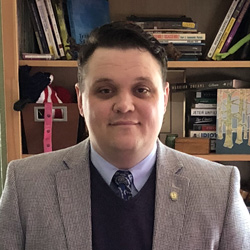
Adam Tucker
Supported Employment Subject Matter Expert
Healthcare Policy and Financing

Patrica Henke
Director
CO Office of Employment First

Meghan Greene
Competitive Integrated Employment Manager
Colorado Division of Vocational Rehabilitation
An APSE Conversation: Intersectionality, Disruptive Movements, and the Ongoing Fight for Civil Rights
Led by APSE Executive Director Jenny Stonemeier, this discussion centers around the many issues we are facing right now. Join us for the final APSE Virtual Conference Conversation where APSE National Board Members grapple with and acknowledge the complicated, uncomfortable circumstances of our time and the work that remains to make #EmploymentFirst a reality for ALL.
The COVID-19 pandemic is a primary issue, but certainly systemic racism, a contracting economy, disparities in access to services, and a serious Direct Support Professional workforce crisis are realities that the Employment First movement cannot afford to ignore. These realities, rooted in a policy context, set the stage for a holistic conversation about Employment First NOW.
The APSE community must work together. None of us alone have answers, but we recognize the strength in this community. Join us for a final call to action to culminate the #APSE2020 Virtual Conference experience.
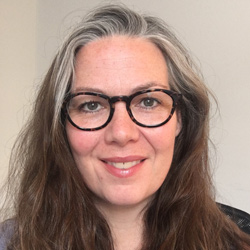
Jenny Stonemeier
National APSE
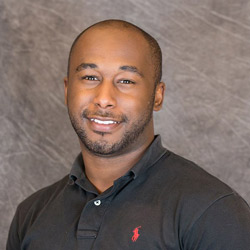
Wesley Anderson
The Arc of New Jersey
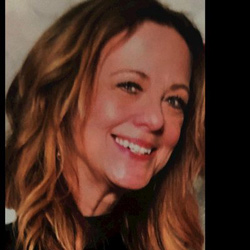
Jan Dougherty
County of Summit Board of Developmental Disabilities, Ohio
